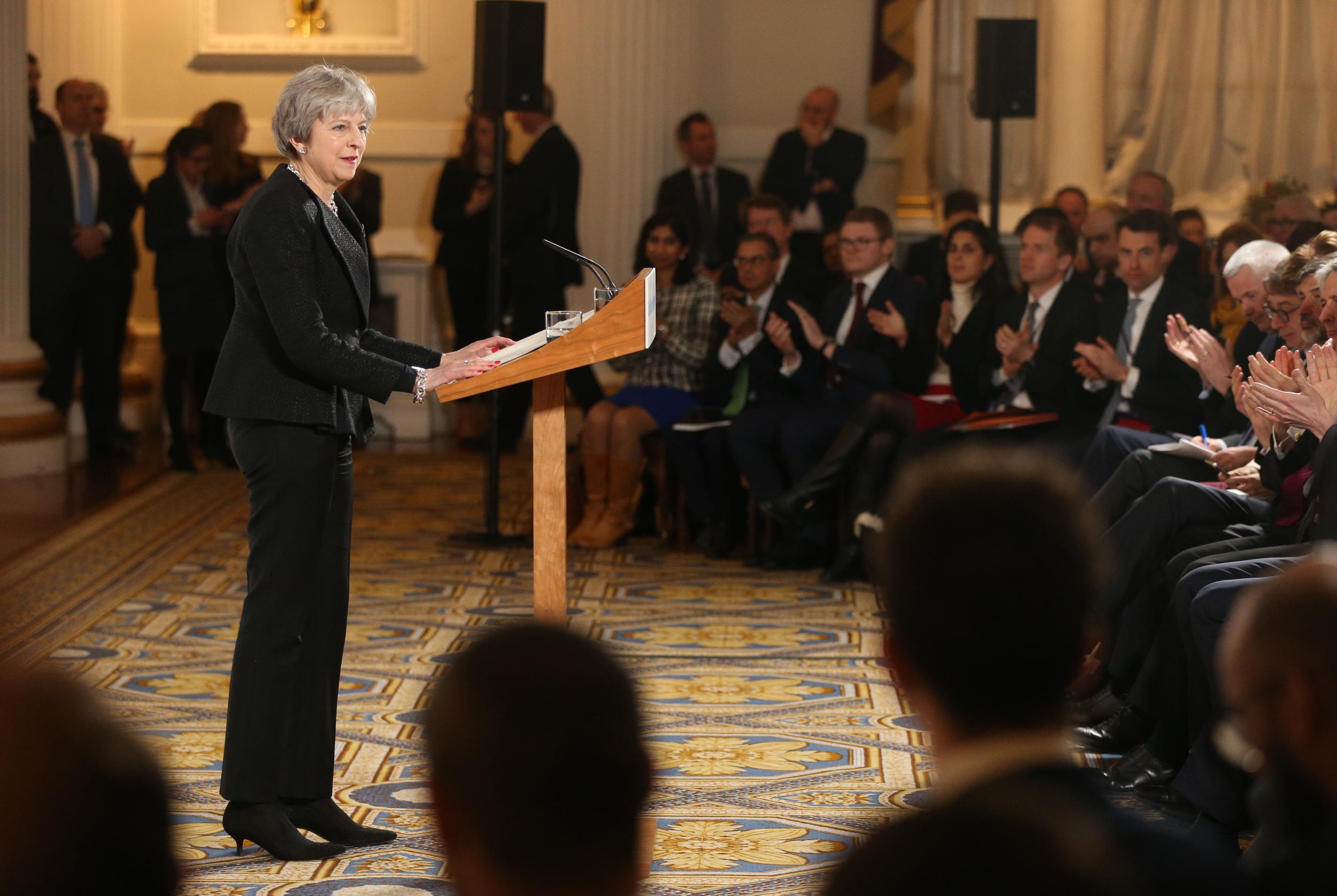Theresa May must fix the broken housing market as she promised
Her trademark caution may be appropriate on some issues, but housing is not one of them

Your support helps us to tell the story
From reproductive rights to climate change to Big Tech, The Independent is on the ground when the story is developing. Whether it's investigating the financials of Elon Musk's pro-Trump PAC or producing our latest documentary, 'The A Word', which shines a light on the American women fighting for reproductive rights, we know how important it is to parse out the facts from the messaging.
At such a critical moment in US history, we need reporters on the ground. Your donation allows us to keep sending journalists to speak to both sides of the story.
The Independent is trusted by Americans across the entire political spectrum. And unlike many other quality news outlets, we choose not to lock Americans out of our reporting and analysis with paywalls. We believe quality journalism should be available to everyone, paid for by those who can afford it.
Your support makes all the difference.In a speech on Monday, Theresa May will try to show that there is more to her Government than Brexit by announcing new measures to boost housebuilding. If some of her ideas sound familiar, it is because they are: a “housing delivery test” to ensure local authorities approve a minimum number of new homes was included in a white paper on housing more than a year ago.
The Prime Minister is right to identify the lack of housing as one of the biggest challenges facing the UK. She is also right to address the supply of new homes, rather than merely stoke demand, and drive up prices and thus rents, through government-funded schemes such as Help to Buy. If the new national planning policy framework results in more affordable homes for key workers such as nurses and teachers, that will be welcome. Proposals such as allowing an extra two storeys to be added to houses and flats are sensible. So are plans for up to five new garden towns between Oxford and Cambridge.
The last rewrite of the planning rules six years ago resulted in more permissions being granted – but without more houses being built. Ministers are considering an overdue crackdown on “land banking” by private developers, who should “use or lose” planning permission. Much more unused land owned by public sector bodies should be used for housing.
As the Conservatives defend their poor record since 2010, they are once again trying to blame someone else. “Nimby councils” were in the sights of Sajid Javid, the Housing Secretary, as he threatened to strip local authorities of their power to decide where housing is built unless they hit their target for a minimum number of new homes. This is a bit rich, since the Tories have largely denied local authorities the right to spend their own money on directly building much-needed social housing.
Ministers will try to combat nimbyism by promising to fund the new schools, doctors’ surgeries and infrastructure needed to go alongside new housing developments. They should also twist the arm of Conservative town hall colleagues keen to see the nation’s undoubted housing needs met in someone else’s backyard.
The problem is that nimbyism goes right to the top of the Government. Left to his own devices, Mr Javid would probably live up to his new title (he was previously called the Communities Secretary) and would adopt more radical measures. Philip Hammond, the Chancellor, drew up plans for limited building in the green belt near train stations for last November’s Budget but they were blocked by Downing Street. This was a month after Ms May told the Conservative Party conference she would make it her personal “mission” to fix the broken housing market. To do that, at some point the UK will have to allow a limited erosion of the green belt. But the Prime Minister is adamantly opposed to it. Some Tories believe she is too influenced by events in her Maidenhead constituency, where she has supported local people opposed to new development.
Her trademark caution may be appropriate on some issues, but housing is not one of them. Average house prices are eight times average earnings in England, and 15 times the average in London – the highest in any major economy. A bolder approach will be needed for the Government to hit its target of 300,000 new homes a year (217,000 were built last year – an improvement, but not enough).
There is no shortage of ideas. Nick Boles, the Tory MP and former planning minister, has suggested a German-style system to give local authorities the power to compulsory purchase land at its current value, put in the necessary infrastructure and then sell off plots to developers for building. Most of the increase in the land’s value goes to the council and funds the new public services needed.
Of course, no housing strategy could be complete without new measures to help Generation Rent and tackle the alarming rise in rough sleeping which now scars the country. These should form part of Ms May’s “mission”, alongside her goal to revive the dream of home ownership for those lucky enough to even contemplate it.
Join our commenting forum
Join thought-provoking conversations, follow other Independent readers and see their replies
Comments